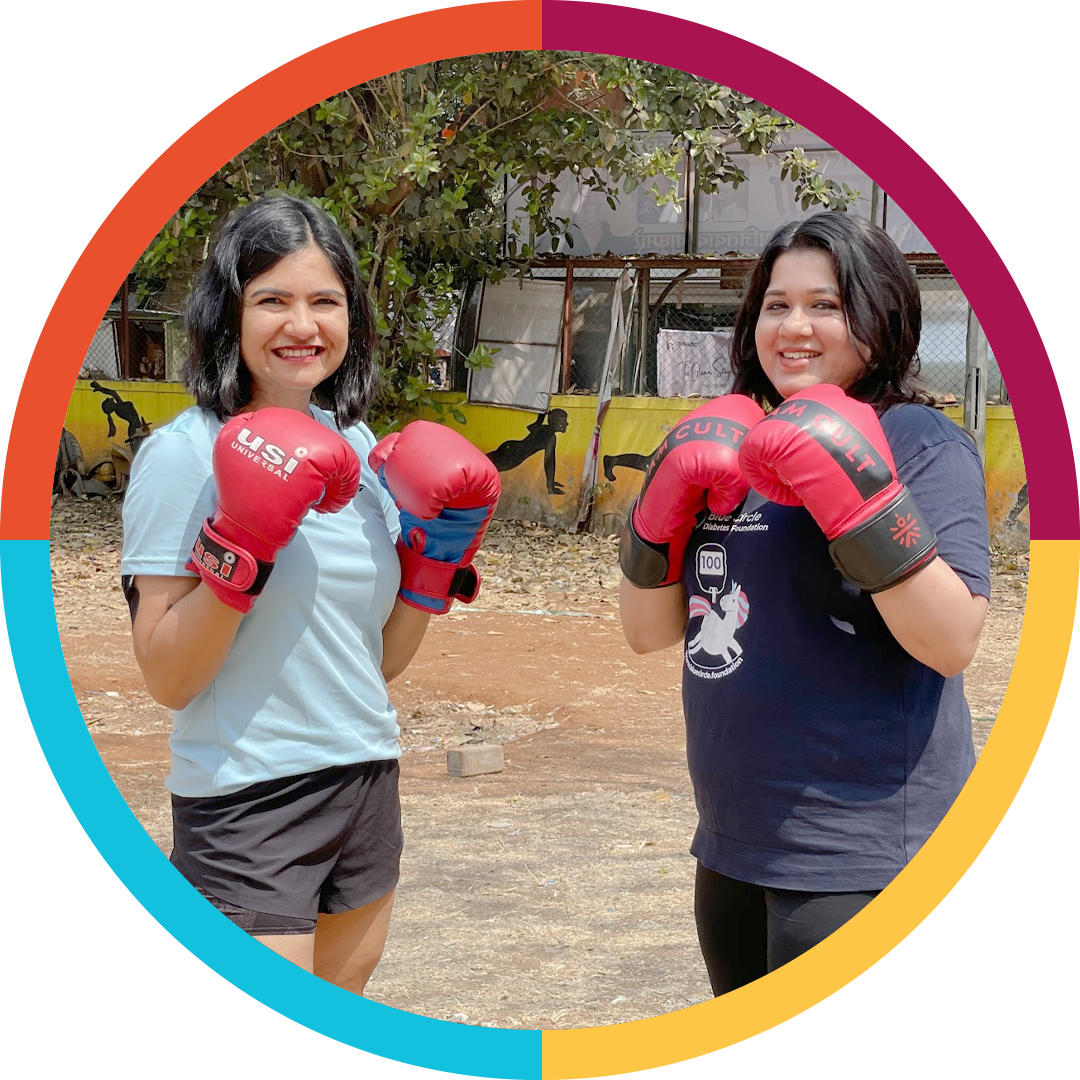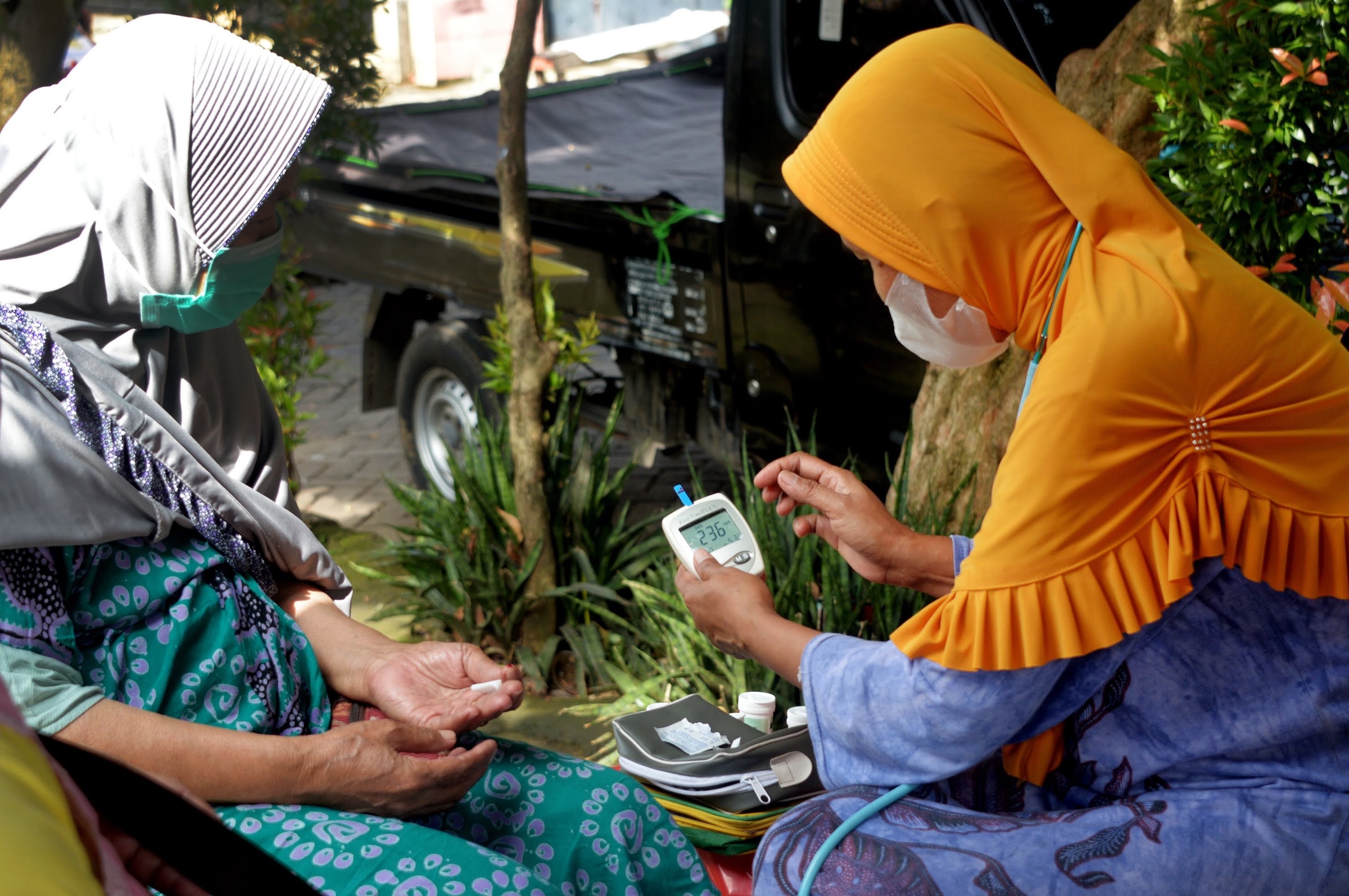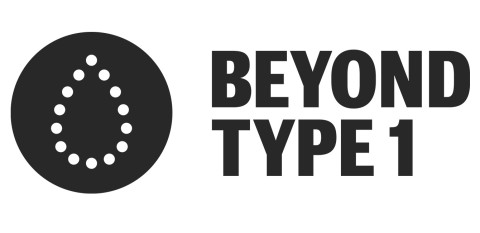When Harichandran Ponnusamy (Hari) was 23, he collapsed at work and was admitted to the hospital. That was the day he first heard the words “type 1 diabetes.” His family didn’t know what to do. Neither did he. “I cried at the doctor’s feet,” he remembers. “I didn’t even know what diabetes was.”
This wasn't Hari's first fight. As a child in rural Tamil Nadu, polio paralyzed both his arms and legs. For three years, he watched his friends play cricket, the game he loved, from the sidelines. When he finally regained use of his legs, he thought his battles were behind him.
Diabetes brought a different kind of paralysis. This time, it was invisible - wrapped in stigma and silence. A woman he hoped to marry couldn't imagine a future with someone living with both disability and diabetes. Financial strain made treatment feel impossible. Once again, cricket, his source of joy and purpose, slipped away.
But Hari refused to stay on the sidelines. A turning point came when Hari heard about type 1 diabetes in a newspaper and connected with the Tamil Nadu Type 1 Foundation. He found not just medical guidance, but community. With insulin and encouragement, he rebuilt his life piece by piece. He returned to cricket as team manager, traveled internationally, and began running marathons to raise awareness. “I run for purpose. I run for everyone,” he says.
Today, Hari supports his family by operating a vegetable business. He continues to share his experience with diabetes openly. “My hope hasn’t faded,” he shares. “I’ve lost many things, but I’ve never lost the belief that I can live.”
Hari’s story is a reminder that diabetes is never just about insulin or numbers - it's about stigma, emotional toll of silence, and systems that fail people when they need support most.
These are the very challenges Beyond Type 1 is working to confront.
Beyond Type 1 is a global nonprofit changing what it means to live with diabetes. Our work centers on amplifying lived experience and supporting community-driven solutions, because the realities of diabetes are not just medical. It is cultural, social, and deeply tied to mental well-being. Too often, people face barriers at every step: late or missed diagnosis, lack of affordable insulin and technology, cultural stigma, and limited mental health support. Bringing those realities into the global health conversation is essential.
Hari is not alone in his experiences. That is why we don't just advocate for people with diabetes - we ensure they're leading the conversation. In September, during the United Nations General Assembly in New York, Ankur Mukherjee, a diabetes advocate from India, took the stage in New York. Beyond Type 1 sponsored his participation to ensure voices like his were heard where decisions get made. His story, like Hari's, proved that diabetes isn't just a condition to treat - it's a daily reality shaped by stigma, culture, and inequities in care.
Beyond Type 1 envisions a world where everyone with diabetes does not just survive, but they thrive. This is how change happens: not through declarations written by others, but through the voices of those who live this reality every day.
The future of diabetes care will not be written in declarations alone. It will be written by those who live it.
Beyond Type 1 thanks Harichandran Ponnusamy (Hari), one of our ambassadors, for sharing his story and using his voice to inspire change in his community.






